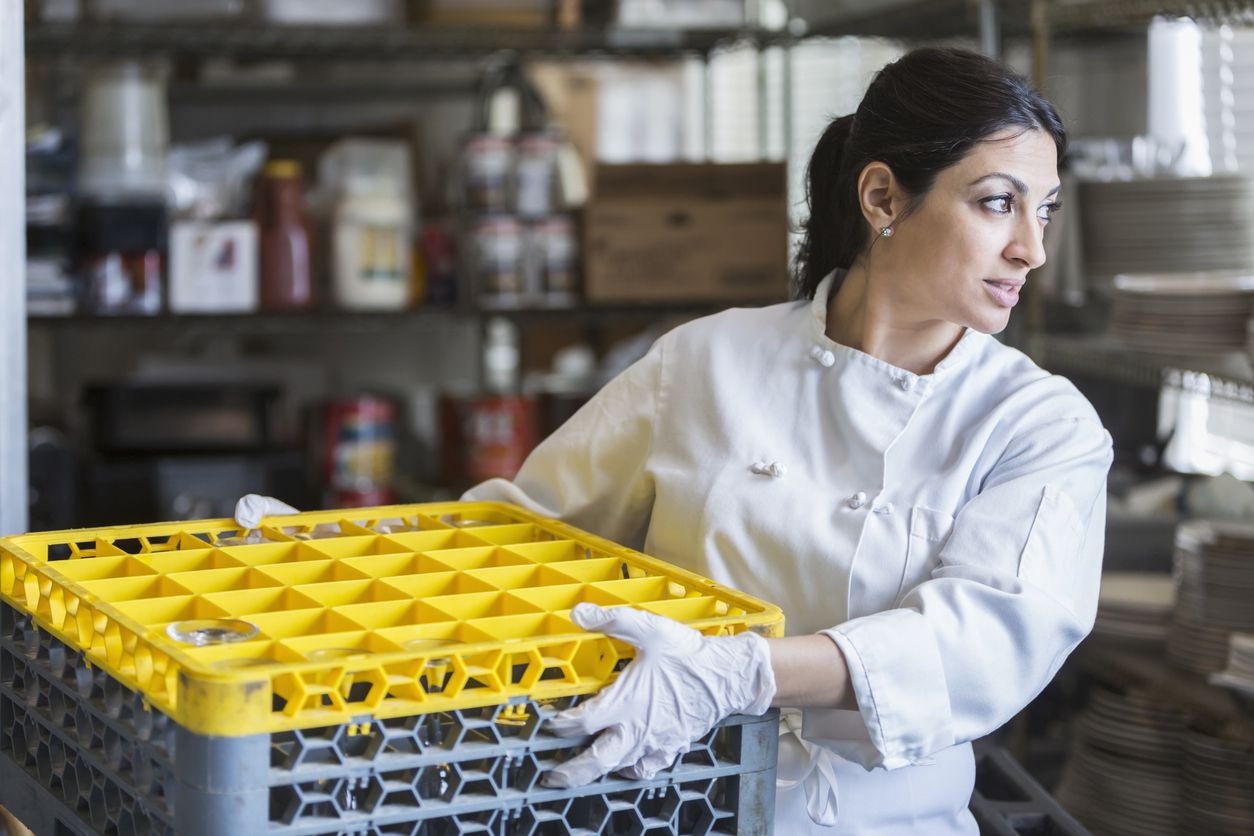
Stress is part of the job for health care workers
Learn how stress affects healthcare workers and other professionals and explore tips and stress management strategies to help you avoid burnout at work.
Read Article
Dishwashing after all, is technically working in the kitchen! Dishwashing places you in an optimal position to learn the ins and outs of other kitchen roles. Becoming familiar with a restaurant’s operational practices and picking up on the tips and tricks necessary to ensure the smooth running of a kitchen (and demonstrating that you’ve gained this insight) will make you a favorable candidate for promotions in the future. No one wants to be a dishwasher forever — and by learning the ins and outs of restaurant operation, you won’t have to be.

According to the
Bureau of Labor Statistics, food preparation and serving jobs are expected to grow by six percent by 2024, meaning the demand for dishwasher positions is increasing. However, this also means that opportunities for upward mobility within restaurants are increasing, too. The typical tasks of a dishwasher include loading and unloading commercial dishwashers with dishes, cutlery, and glassware, washing items by hand that cannot be washed by industrial-sized machines (such as pots and pans), and cleaning kitchen and dining areas—as well as performing basic kitchen preparation as needed.
Though the work may not be glamorous, dishwashers essentially manage the important supply chain of dishes, cutlery, and utensils for both the restaurant, customers and the cooks in the kitchen. If there aren’t enough clean dishes for customers, or too few pots and pans for the kitchen, then the entire supply chain slows down, holding up a restaurant’s productivity and costing them money, too. In this way, dishwashing is actually a vital component of restaurant and kitchen management: the more efficiently a dishwasher completes their tasks, the smoother the entire process runs. If you’re looking to be promoted from a dishwasher position, emphasize the importance of your role as well as the familiarity you gained with restaurant operation as a whole.
Understanding the operational chain of a kitchen can be achieved by familiarizing yourself with what each position in the kitchen does‚ for example, the responsibilities of a
head chef versus a sous chef, who performs which functions, and how each member of them team began their culinary career. Additionally, by cracking this code, savvy dishwashers can better determine which dishes to wash first, ensuring maximum productivity. For instance, if you notice that the cooks use frying pans more frequently than soup pots, you’ll know which dishes to prioritize. Though it may not seem that important, other members of the kitchen and restaurant staff will notice a dishwasher who does their job well‚ and one who actively learns about roles other than their own, rather than resigning themselves to what can be a somewhat single-minded task.
Because they’re at the bottom of the shelf, so to speak,
dishwashers are actually in a prime position to learn the tactical ins and outs of restaurant management and kitchen operation. Starting as a dishwasher will give you important experience as well as the observational insight that you can leverage to be promoted in the future, and employers will respect the work you put in, too. When it comes to dishwashing experience, indicate on your resume or in cover letters that you took the opportunity to learn as much as you can in an otherwise limited role.

Learn how stress affects healthcare workers and other professionals and explore tips and stress management strategies to help you avoid burnout at work.
Read Article

Learn when to include your GPA on your resume and see best practices for presenting it to increase your chances of securing your dream role.
Read Article

Learn what the hospitality industry is, discover four of its key categories, and consider 10 of the most attractive hospitality-related jobs available.
Read Article